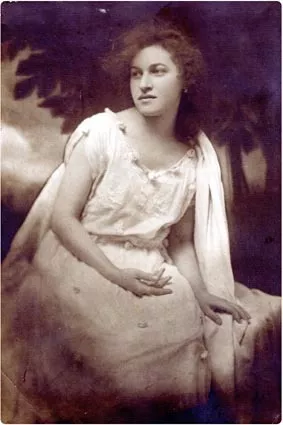This is a picture of my mother, Rozsa H. nee Freiberger as a young woman. She's about eighteen or nineteen. The picture was taken in a Budapest studio in 1922, the name of which I don't know. This was the couple years in my mother's life between the time she worked as a Civil School graduate and when she was married. She was a secretary in some office. After that she was a housewife from then on.
In Ujpest, without the siblings' approval, Grandma married a lawyer, also named Engel, who was likewise a widower, and he had a son, Kalman. The marriage didn't work out. There were emotional problems, Grandma had imagined things would be different. By my count, she could have been over forty, and she likely imagined the marriage would be a financial boon for both of them. So it didn't work, though my mother had a brotherly friendship with her stepbrother, Kalman. Kalman took her around with him among his circle of friends, and that's where mother got such ideas of civil lifestyles, which were very important to her for the rest of her life, her standards. And she guided our lives in that direction. I have to say, successfully, because in the end, both of her children became graduates.
My mother's two siblings died in 1919 in the Spanish Flu [Spanish Flu: the first big epidemic of the 20th century, took 20-21 million victims from 1918-1919. For example, in October of 1918, 44 thousand died of this disease in Hungary.] and grandma was devastated from that point on. Her life nearly ended from that time on. They died in the hospital. That's why me and my brother were born at home, because it was such an experience for my mother as a young girl, that someone who goes into the hospital, stays there and never comes out.


















